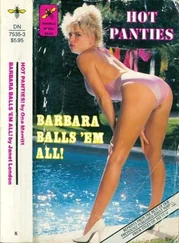Senator Durbin did not just sell stocks based on his inside knowledge. Like Bachus, he was looking for opportunities to invest. Though he sold many of his holdings, he also bought tens of thousands of dollars' worth of Berkshire Hathaway, the holding company run by the legendary investor Warren Buffett. Durbin bought shares on September 19 and 22—more than $60,000 worth. His timing was nearly perfect. The next day, September 23, it was announced that Berkshire Hathaway was buying part of Goldman Sachs, which would yield a 10% guaranteed dividend for Berkshire investors like Durbin. The deal had been discussed behind closed doors for days before Buffett announced it publicly. Durbin's spokesman insists that the senator "didn't use any information from that closed-door gathering to counsel his trades the following day." Yet it is almost certain that Durbin, as chairman of a crucial subcommittee, knew about the Goldman Sachs deal.
When the House Financial Services Committee was crafting legislation for the TARP bailout of banks in the fall of 2008, eight members of the committee were actively and aggressively trading bank stocks. So too were members of the Senate Finance Committee. As the Treasury Department was conferring over which banks would get the bailout money, Senator John Kerry started buying Citigroup stock. The markets might have been down and in turmoil, but Kerry was buying the troubled company. Lots of it. He purchased up to $550,000 in Citigroup stock in early and mid-October. He also bought up to $350,000 in Bank of America shares. Days later, on October 28, it was announced that Citigroup was getting $25 billion from the TARP Capital Purchase Program and another $25 billion from the Targeted Investment Program. On November 4, it was announced that Citi would be provided additional loan guarantees that could total $277 billion, from the Treasury, the Federal Reserve, and the Federal Deposit Insurance Corporation. 19
Members of Congress are privy to all sorts of inside information about pending government actions. Some of it comes from their actual actions—that is, passing legislation. Some of it comes as a result of their position of power. Legislators are told things by regulators or bureaucrats in private because they ask about them. While a committee's public hearings are generally about stagecraft, very frank and detailed conversations often take place behind closed doors. The most valuable information is revealed in private meetings, phone calls, and correspondence. If members of Congress buy and trade stock based on that information, or if they pass that information along to a campaign contributor or their own financial advisers, they are not considered guilty of any wrongdoing. Yes, this is an outrageous standard. But remember, they write their own rules.
Consider for a moment the fact that the political class regularly trades stock in government-backed entities like Fannie Mae and Freddie Mac while at the same time determining the fate of those very entities.
Fannie and Freddie were chartered by Congress, and both have implied government guarantees. For many years, these entities were exempt from the nation's financial disclosure regulations—and politicians traded shares in these companies. Indeed, Fannie and Freddie were even exempt from insider trading rules. And in this murky world, Senate and House members invested with one hand while they exercised oversight with the other.
In February 2003, Rahm Emanuel was a newly elected member of Congress from Chicago. He had a seat on the House Financial Services Committee's Subcommittee on Capital Markets, Insurance, and Government-Sponsored Enterprises, which had direct supervision over Fannie and Freddie. Emanuel had previously served on the Freddie Mac board—he'd been appointed by President Clinton in 2000—so he was very familiar with its inner workings. On February 21, Emanuel suddenly sold off all of his Freddie Mac stock, up to $250,000 worth. 20He did so just days before a nearly 10% drop in the share price. It was not until the late spring that the public learned in full what was going on at Freddie Mac: there was a criminal investigation of its senior executives, and its earnings had been inflated and would need to be restated to the tune of billions of dollars. (The Freddie Mac accounting scandal was actually larger than that of Enron.)
Were a board member or employee with intimate knowledge of a corporation to dump all of his shares right before an announcement of bad news and a plunge in the stock price, it would at least warrant a look by the SEC. But when a member of Congress does the same thing, he gets a free pass.
The profitability and stock price of Fannie and Freddie have been closely tied to the politics of Washington. On Election Day 2004, when exit polls initially—and wrongly, as it turned out—suggested that John Kerry would win the presidency, Fannie Mae stock markedly rose. When it became clear on November 3 that President Bush had been reelected, Fannie stock opened down and fell sharply for the day, while financial stocks gained overall. 21The reason is simple: George W. Bush was seen as a likely proponent of reforming the government-backed financial giant, whereas Senator Kerry was an opponent of such reforms.
WE KNOW WHAT'S HAPPENING BEFORE YOU DO

There is nothing wrong or unusual about that stock movement, nor anything surprising about the positions taken by Bush and Kerry on the issue. But were those positions influenced by self-interest? For years, Kerry had been an advocate for expanding Fannie Mae's mission, not reforming it. 22He was generally opposed to removing any government guarantees, tightening lending standards, or greater regulatory oversight by Congress. As Kerry was resisting legislative efforts to impose additional regulatory restrictions on the financial giant, he and his wife were quietly selling off their extensive Fannie Mae holdings throughout early 2005. 23Indeed, over a six-month period they dumped around $1 million in Fannie Mae stock. (Again, only ranges were disclosed, not actual figures.) Furthermore, the Kerrys were trading their shares at the same time that the company was telling all of its employees that they could not trade the stock until the new earning results were made public. 24The Kerrys, who had traded Fannie Mae shares for years, dumped the stock before it suffered serious declines. They actually managed to post capital gains on the stock of up to $250,000 on those transactions. 25How many other Fannie Mae investors could claim that, in what was a bad time for the stock?
Members of Congress sometimes pay lip service to avoiding potential conflicts of interest. Indeed—and ironically—in 2009, when the federal government was passing out hundreds of billions of dollars in TARP funds to private financial institutions, Speaker of the House Nancy Pelosi argued that "when there's been a thought of conflict of interest" between a member's financial holdings and government bailouts, then that member "should divest." 26
But there is simply no evidence that Pelosi, or any other member, did so. And there is no evidence of any member of Congress recusing himself when it came to voting on matters that would directly benefit him.
They bet on their own games. They bet on failure. Is there any solid evidence that their political decisions were tied to these bets?
For that, you have to look at some very narrow, tailored bets. Sometimes legislators receive big financial favors from specific companies—and then they work to help those firms.
3. IPOs: INVEST IN POLITICIANS OFTEN
IF YOU COME into Congress already rich, serving there will give you an opportunity to become even richer.
Читать дальше












